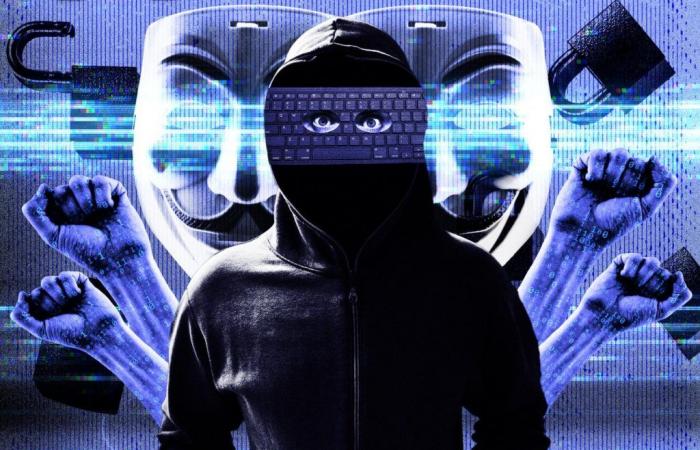On August 27, three days after the arrest of Pavel Durov, the CEO of Telegram, a strange channel announced on messaging that it had “disfigured” the home page of several French websites. Using the keyword #FreeDurov, the Stucx Team group claims, in support of the Franco-Russian citizen, the hacking of several French sites.
In the same publication, this online collective with relative exploits thanks its “brothers in arms”other groups with equally evocative names: Moroccan Black Cyber Army, Holy League, Khalifa Cyber Crew and Ripper Sec. Because Stucx Team, which presents itself as a coalition of Muslim activists from Malaysia, is only the tip of the iceberg: in recent years, several companies and computer security experts have noted a strong return to hacktivism, a contraction of “hacker” and “activism”, a mode of online activism popularized by Anonymous.
NoName057, Anonymous Sudan, Philippines Exodus Security, Indian Cyber Force… It’s difficult to navigate the jungle of names that have multiplied, particularly on Telegram messaging. It is also difficult to assess their true impact.
A new boom
Many indeed claim unsophisticated actions. The specialist company Group IB thus analyzed the activity of Mysterious Team Bangladesh, a group of hacktivists with “political and religious” and which mainly targets, since 2020, India and Israel. The company determined that nearly 90% of the actions claimed by the collective were simple denial of service (DDoS) attacks. The rest of the claims concerned defacements, actions consisting of modifying the home page of sites that are generally poorly secured. Another major modus operandi that we find among this new generation: hack and leakthat is to say the dissemination of confidential information and stolen documents, most often unverifiable.
Read the decryption | Article reserved for our subscribers DDoS attacks: limited technical impact, real symbolic consequences
Add to your selections
These methods are directly “The Legacy of Anonymous”estimates with the Monde the American researcher Gabriella Coleman, specialist in this informal collective which marked the beginning of the 2010s and has since fallen into disuse. But why, suddenly, are new factions claiming this independent mode of action?
Paradoxically, a first avenue is to be sought from the side of States, as evidenced by the example of the Handala collective: on September 18, the day after the explosion of thousands of pagers belonging to members of Hezbollah in Lebanon and Syria, the collective promises the truth about this attack and begins to distribute documents. The latter, including The World could not verify the authenticity, are presented as stolen from companies that collaborated with Israeli intelligence to carry out this operation.
You have 65.73% of this article left to read. The rest is reserved for subscribers.






